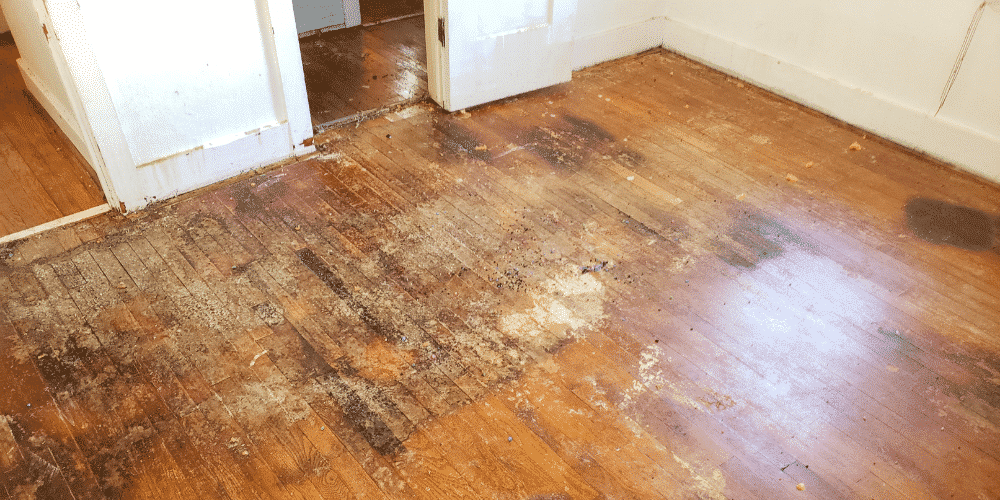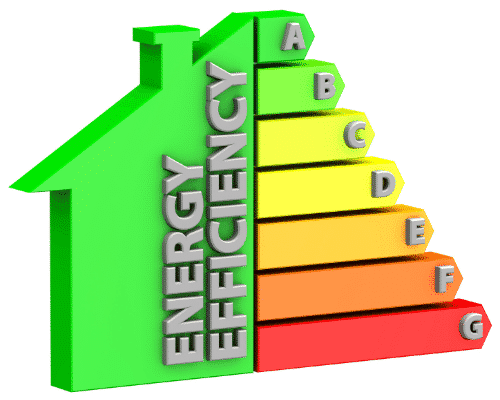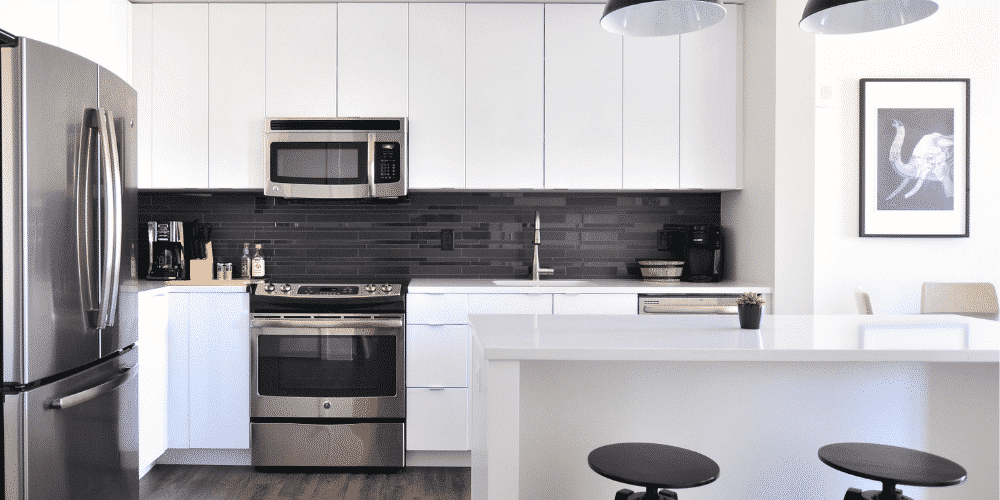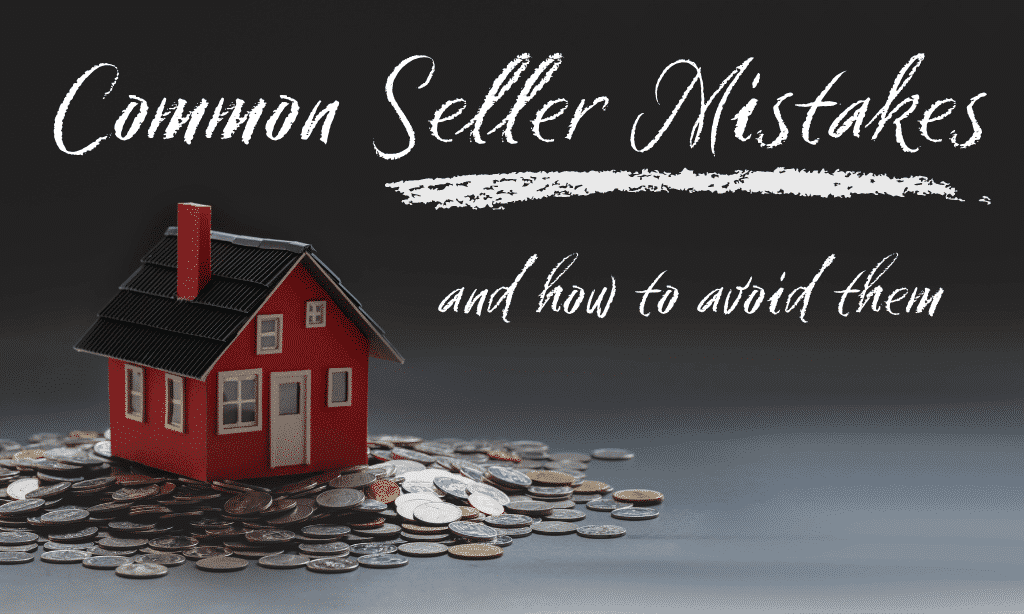It can be difficult and exciting to list your home for sale, especially if you are selling a home for the first time. There are many common seller mistakes you need to remember in order to avoid a disaster when selling your home.
Selling a house can feel like flying on an airplane. There are bumps, turbulence, and delays along the journey. Avoiding these common mistakes can help you sell faster and at the highest price possible.
Before you even start, do you have equity in your home?
Without equity, most people cannot sell their home. Equity is the value of the property minus what is owed for mortgages and liens. Without equity, you would have to pay the expenses of selling a home (realtor, closing costs, repairs) out of pocket. Most people can’t do this.
If you are close to closing, or if you want to save thousands on real estate commissions, a discount real estate broker is a great option, but more on that later. You may have to pay more if you don’t have enough equity to cover the costs of the sale. Read our how real estate commissions work article for more information.
Not knowing the cost of selling a house

Although you will most likely make a profit on the sale of your house, one seller mistake is overlooking the costs associated with the process. To cover both buyer and seller agents’ commissions, sellers should expect to pay five to six percent of the total sale price.
If you are selling your house for $500,000, you could end up paying $30,000 in real estate commissions to a traditional real estate broker. This doesn’t include any future negotiations, such as repairs or damage that might be discovered during an inspection.
You will also need to estimate closing costs such as title, closing attorney fees, closing attorney fees, closing attorney fees, closing attorney fees, closing attorney fees, closing insurance premiums, and so on. These costs are often referred to as “Seller’s net sheet” and should be provided by your Realtor.
Not Considering A Discount Real Estate Broker
This may not be one of the seller mistakes, per say, but something that is often overlooked. Traditional brokerage models dominated the market before the internet was invented and sophisticated real estate technology tools and software were developed. Here the original six percent of commissions were born.
Real estate commissions can be very high, especially for homes that are worth a lot. The discount real estate broker today can offer essentially the exact same or better services than any other Realtor in your area.
There is a difference. Discount real estate brokers are highly efficient and can focus on specific tools to sell your home at the highest price. They also avoid unnecessary costs and save you thousands in commissions. Sometimes, tens of thousands. By leveraging technology to help home sellers save money, discount real estate brokers are a disruptive force in realty. Do not overlook your local discount broker.
You are not budgeting enough money for your move
There are two options when it comes to moving. You can either hire a professional or do it yourself. You can hire movers to do all the heavy lifting and packing. They may also insure your items. This is a great option, but it comes at a cost.
Consider how you will move your belongings. Make sure you have the right tools, money, and resources. Before you make your decision, get quotes from at least two moving companies. Then reconcile the amount in your seller’s net sheet to ensure that you don’t have to come out of pocket.

Choosing the wrong listing price
Deciding on the asking price is one of the most important steps to listing your home for sale. Everyone wants the best price for their house. We’ve all heard the jokes about “this is how my home looks to me” and “this is how it looks to a buyer”. These jokes may seem tongue-in-cheek but there is some truth to them. Three major problems can befall sellers who overprice their homes:
1. Not showing up in searches online
People can type in their price ranges when searching for property. This is often the first question you ask. A home that is priced in accordance with current market conditions will be seen by potential buyers and receive more exposure.
2. Sitting on the market too long
Homes that are listed for more than they are worth get fewer showings. The longer your home sits, the more you pay. An overpriced home is less appealing to both buyers and real estate agents. The longer a house is on the market, the better chance of people losing interest and the house just not selling.
3. The appraisal comes in too low
More than likely, your buyer will use a home loan to purchase the property. The home must appraise for at least the selling price in order to be eligible for a loan from a lender. An appraisal is a formal process that determines the value of the home for lending purposes. The lender will not provide financing greater than the appraised value of the property.
Not anticipating problems
Unexpected surprises are not something anyone likes, but they’re quite common in a home sale. Things like termite or water damage discovered during inspection. Not anticipating and understanding a buyer’s request that the seller contributes to the buyer’s closing cost as part of the agreement. You didn’t want to give up the fridge you had planned to keep, but the buyer demanded it as part of the deal. Even worse, buyers may have to sell their house and close on it before they can purchase yours.
An experienced Realtor can help. Because they have years of experience with unexpected situations on a daily basis, realtors are often able to find a solution for most problems. No Realtor would want to spend two to three months selling a house only to have it fall apart due to a problem that is not obvious.
This is where the discount broker excels. Their business model is likely based on anticipating problems and trying to avoid them. A home is an investment. This means that it is crucial to anticipate and prepare for potential problems in order to have a pleasant and smooth sales experience.

Not addressing flooring issues
The flooring’s condition will show in the final sales price. It doesn’t matter if you are selling hardwood, laminate, tile, or carpet. Selling will be easier and more efficient if your flooring is clean. Consider including a “flooring allowance” to the negotiations if the carpet is damaged. This allows the buyer the option of applying whatever amount they have for new flooring. This could lead to more money being spent on renovations if there is significant flooding in the basement.
It is usually more cost-effective than replacing the carpet yourself. This is because it is impossible to know the preferences and tastes of each buyer. To remove dirt and oils from grout tiles, you might consider hiring a grout cleaning service. Everything must be as clean as possible.
Failure to properly stage the home
Staging a home’s interior is a way to improve its appearance. A stager can either completely refurnish an empty home or make changes to the house if you will be living in it during the sale process. The seller will benefit from staging as it can increase the sale price and reduce the time the house is on the market. There is a cost to staging. Make sure you check out some local stagers before you decide how to proceed.
Not using professional real estate photos
Photographs are your next best-selling tool after location and price. Photos are important. High-quality, high-resolution photos are essential with today’s advanced cameras and imaging devices. Before deciding whether they want to view it in person, this is what your buyer will see online.
The additional expense of professional photography is easily worth it. Professional quality photos can be produced by many experienced real estate agents. If they can help you save money on hiring additional professionals it is likely that they will. Drone photography is a great option if you are interested in it. Drone footage is a popular choice for buyers as it allows them to see more than what’s visible in photos.
Not making energy-efficient upgrades
Energy efficiency is a key focus of almost everything these days. Energy efficiency is becoming more important than ever in homes, from appliances to windows to lightbulbs to even “smart controllers”. Consider replacing your old incandescent lightbulbs with compact fluorescent or LED lighting. These lights are more energy-efficient, emit less heat and have the same or better lighting performance as incandescent bulbs.

Smart controllers automatically turn heaters on and off when they aren’t. The same goes for lights. Many controllers can be programmed to create a schedule that suits your lifestyle. Are you returning from summer vacation and don’t want to enter a hot home? No problem! Turn on your AC with your smartphone before you catch your flight so the home will be cool when you get there.
Although the list of energy-efficient upgrades can be quite long, it will make your home more appealing to those who want to reduce their heating and cooling costs. This will make your home more attractive and valuable to potential buyers. Make sure you have the most energy-efficient upgrades possible.
Showing the house without cleaning it first
There is nothing worse than selling a dirty home. Well, there may be some things. Still, a filthy or smelly house can be very difficult to sell. My experience as a Realtor has allowed me to open the doors of many homes where my buyer walks in and then turns around and walks out.
This is the easiest of the seller mistakes to avoid. It is easy to shoot yourself in the foot by not showing a clean home. Cleanliness is key to getting the best price for your home. At a minimum, this should include the floors, bathrooms, kitchen, and any other surfaces.
Forgetting about the outside
Everyone understands how important curb appeal is. The home’s ability to sell itself from the moment a buyer pulls up. A buyer might notice that your house needs a paint job or the grounds need work before they even get to your home. This could influence their decision and the outcome of the sale.
Buyers will begin to notice negative characteristics faster than they should. Your house’s exterior can derail a deal before they even enter the home. You can make sure your home is looking its best from the street. Trim any trees or hedges and clean up the yard so it looks great. These items should be addressed by prospective sellers before buyers begin showing up.
Exterior paint is not enough
Everybody has their own style and preference. One time I sold the house of a San Diego Chargers fan, whose entire interior was painted in yellow and blue. Even the carpets were brightly colored. It can be difficult to sell a home if it is focused on one style.
The best exposure means that most people searching for homes like yours can see it and eventually come to visit it. Avoid turning off buyers by using too many bright colors. Although neutral paint is the best choice, you may also want to consider giving an allowance to the buyer if it becomes prohibitively expensive to repaint. This gives the buyer the freedom to paint the house as they wish and can be a nice bonus.

Mismatched kitchen appliances
Maybe your black oven was broken down a few years ago. You also installed a stainless-steel microwave. Although it won’t affect the overall sale price, mismatched appliances can be a deterrent to high-end buyers and slow down the sales process. You should replace mismatched appliances if possible.
Trying to “help” during a showing
It is highly recommended that the seller be away from the house for all showings. It may seem like a good idea to show buyers the home in its entirety, but it is not helpful, according to the National Association of Realtors and other online sources. Don’t make it difficult for buyers to see the house through their own eyes.
You can take a stroll around the block, or grab something to eat while the buyer previews the house. A buyer who is not present with the owner will be more open about the home and give honest feedback. Otherwise, you just a “Thanks”, we’ll let your know.”
Do not accept lowball offers personally
Every seller wants the best price for their house, but every buyer wants it to be the lowest. Do not be offended by a low initial offer. An initial lowball offer can have many valid reasons, so don’t be offended.
Send a counter-offer back and see if it helps you to strike a deal. Negotiations usually go back and forth until the price and terms are settled. Your Realtor will typically handle this portion for you. However, don’t let a low offer turn you away from any potential buyer. Always counter-offer. You never know, you might settle on the price that you want.
In Summary
Everyone wants to make money selling their home, which is usually your most valuable asset. If managed properly your home sale can generate a great profit. Before you put your home up for sale, make sure you are approaching it wisely. To find hidden repairs, you might consider a pre-sale inspection. Make sure to add all costs to your seller’s financial statement so you know that you will be making money when you sell it.
Consider advertising seller concessions if you don’t have the ability to fix certain problems or believe it makes more sense for you to let them be. And remember, to save money and have maximum flexibility, you should interview a discount brokerage to find out how much you can save. We wish you the best in your home selling process.

